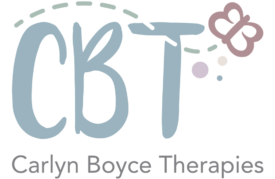What do goals mean?
Sometimes, setting goals can feel overwhelming-almost too big to tackle. I bring this up because CBT (Cognitive Behavioural Therapy) often revolves around goals. However, as I’ve mentioned in my other blogs about modernising CBT, the word “goals” can sometimes feel intimidating. We might need to rethink how we frame them while still preserving the essence of CBT.
So, how else can we think about goals in the context of therapy, particularly CBT? Consider asking yourself: What do I want to gain from treatment? What do I want to start doing again? What’s missing in my life, or what new experiences do I want to try? These are all different ways to define your goals.
Sometimes, a goal might be as simple as wanting to be happy. But how do we measure happiness? What would that look like for you? For one person, happiness might mean going for walks again, hitting the gym, or spending more time with family. For another, it could be as simple as reading a book. These may seem like small goals, but they’re meaningful, and that’s what matters.
Your goals matter!
Everyone’s goals are unique. While one person may have a long list, another might only have one or two. What’s important is that you have something to aim for-something achievable. In therapy, one of the first things we discuss is what your goals are, where you want to be, and what changes you hope to see. This is not only crucial for you but also for me as your therapist because it helps guide our work together.
Goals give us direction and focus. Without them, it’s hard to measure progress. But remember, your goals can evolve throughout therapy. Don’t be too hard on yourself if they change. If you’re considering starting therapy, take some time to think about what you want to achieve. If defining your goals feels challenging, that’s okay-we can discuss it together in therapy.
So, how do you get started?
Putting your thoughts on paper can make them feel more tangible and real. That’s exactly what I want you to start doing now. Even if you begin by simply writing the word “I,” it’s a start. From there, you can start thinking about how you might complete that sentence. The below will help you do that
Here’s a simple guide to help you get started:
1. Reflect on What Matters:
Begin by thinking about what’s important to you. What areas of your life do you want to improve? What’s missing, or what would make you feel more fulfilled?
Consider different aspects of your life, such as health, relationships, career, personal growth, or hobbies.
2. Break Down Big Goals into Smaller Steps:
Large goals can feel overwhelming, so break them down into smaller, manageable steps.
For example, instead of writing “Get fit,” break it down into “Walk 30 minutes three times a week” or “Join a gym by the end of the month.”
3. Use the SMART Framework:
Ensure your goals are Specific, Measurable, Achievable, Relevant, and Time-bound (SMART).
Instead of saying, “I want to read more,” write, “I will read one book per month for the next three months.”
Disclaimer: I’ve included information about SMART goals here because of my CBT training, but I want to be honest with you-I’m not a fan of SMART goals myself. I find they can create unnecessary pressure and feel a bit too formal. Nevertheless, they might work well for you, so I wanted to include them as a potential tool for your goal-setting journey. If you find them challenging, don’t be discouraged; there are other approaches that might suit you better.
4. Prioritise Your Goals:
List your goals in order of importance. Which ones resonate with you the most? Start with those, as they’re likely to keep you motivated. But writing down 1 goal is fine for now!
5. Write Them Down:
I love a good journal! Use a journal, planner, or digital tool ( I use the notes app) to document your goals. Writing them down makes them more tangible and helps clarify your intentions.
Be specific about what you want to achieve, why it matters, and how you plan to get there ( you would not be seeing my website, if I didn’t do these very steps, myself)
6. Set Deadlines:
Assign a realistic timeline to each goal. Having a deadline helps create a sense of urgency and keeps you on track.
7. Review and Adjust Regularly:
Revisit your goals regularly to track your progress. Adjust them as needed if your priorities or circumstances change.
Celebrate your achievements ( this is so important), no matter how small, and reflect on what you’ve learned from any setbacks.
8. Start Small and Build Momentum:
If you’re unsure where to start, begin with something small and achievable. Success with one small goal can build momentum for tackling larger ones.
Starting to write down your goals can be a powerful step toward achieving them.
I hope you found this helpful. If you’re on my website reading this blog, reaching out to explore therapy options might have been one of your goals. If so, that’s a wonderful first step toward understanding yourself and recognising your needs.
This blog primarily addresses therapy goals, but the tips can be applied to any type of goal you have in life. As you might have seen on my website, I also offer mentorship and career development support. If you’re facing challenges with your career goals, use the same strategies outlined here. Take time to reflect on what you need and want in your career. The insights from this blog can assist with achieving goals and focusing on various aspects of your life.
Feel free to leave a comment and share one of your initial goals. Has this blog helped you begin to focus on or define your goals? I’d love to hear from you if you’re comfortable sharing.

